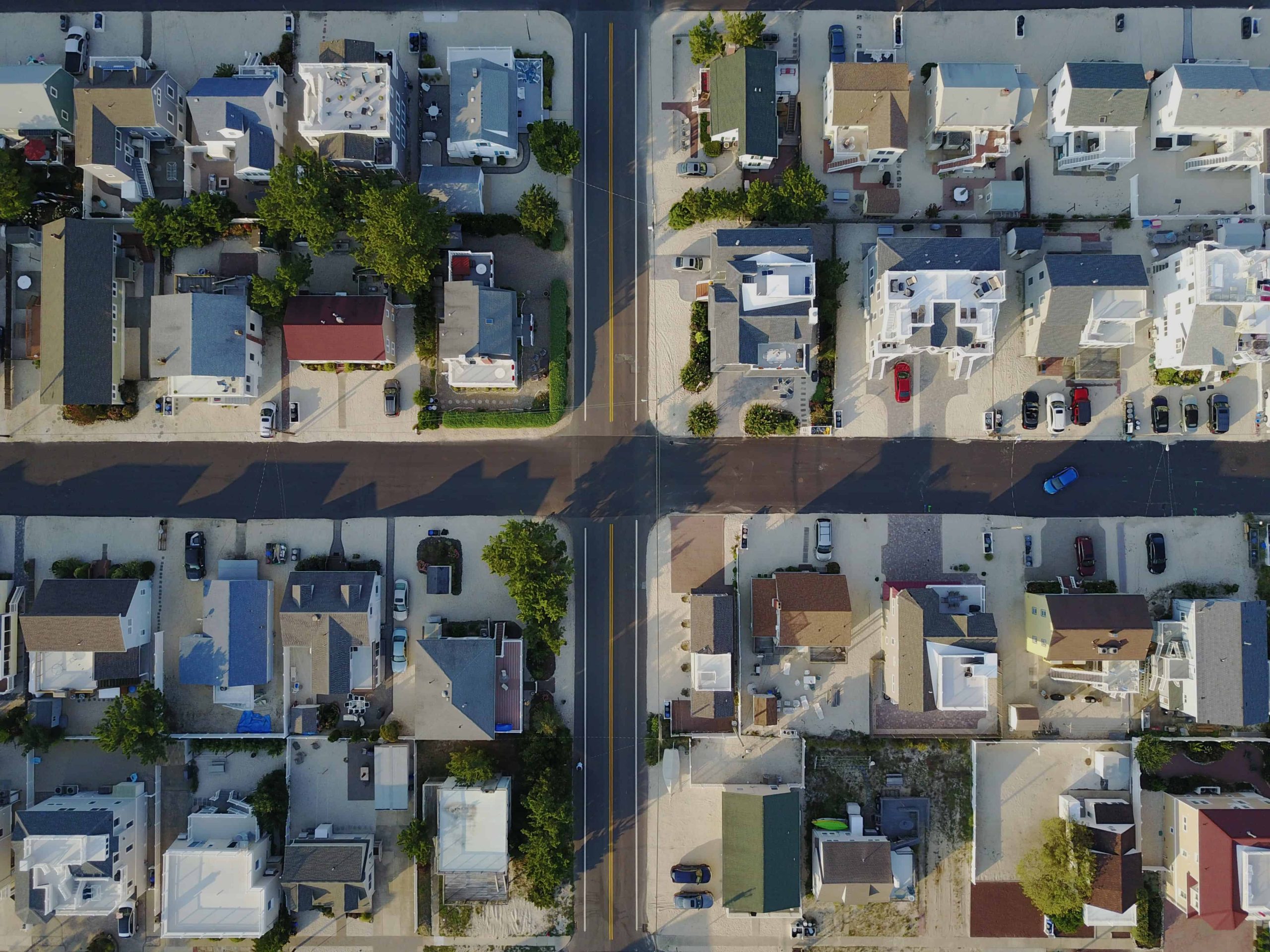
Are Prediction Markets Halal or Haram? The Truth About Polymarket & Kalshi
06 February 2026 7 min read


Adil Hussain
Head of Content
14 min read
Last updated on:
Owning a home is a dream for many. However, for a variety of reasons this has been unattainable for many Muslims. For many in the west, a key obstacle is having a cost-effective and sharia-compliant way to help them finance the cost. This is the problem Pfida (formerly Primary Finance) are trying to solve. We’ve previously done a podcast with them with, which you can check out here.
In this article, we will be proving an in-depth review of their offering as well as commenting on how they stack up against the competition. We have previously reviewed Al Rayan Bank’s HPP product and Gatehouse too.
Here’s what we will cover:
Pfida are a shared ownership alternative to traditional home financing products. They offer a debt-free way to help people purchase a home. Their mission is to develop such a product where no one will want debt-based finance anymore.
The product operates as a partnership rather than a debt. This means you are not simply borrowing money from them to purchase a house. Rather you enter into a partnership agreement with them to jointly fund the purchase of a house.
You then pay rent on their share of the property. You can also buy their share over time to decrease the amount of rent you pay and eventually end up achieving full ownership.
You might be thinking “this sounds basically like any other Islamic mortgage or shared ownership product.” But the important point here is you are not obliged to purchase their share. It is entirely up to you.
Let’s work through an example of how this works:
Yes. Pfida are using the diminishing musharakah structure which is the most common structure in the UK. We covered this in more detail in a previous article on Islamic home purchase plans which you can check out here.
Essentially, the product has been structured as a partnership where the risk and reward are shared between the two parties and there is no riba involved. Their sharia-compliance has been signed off by in-house scholar Sheikh Salman Hasan and has received endorsements from scholars such as Sheikh Haitham Al-Haddad from the Islamic Council of Europe.
Pfida require that you have at least a 20% deposit and have a finance limit of £400k per customer. You also need to be financing a minimum of £50k. They expect to be able to loosen these requirements as they grow and scale.
The rent they charge is based on the local property market rates. This is reviewed each year to ensure it is in line with any market changes. If your local market rental rates go up, then so will your rent payment. Conversely if the local market rates go down, so will your rental payment. They have a maximum cap on rent increases which they will communicate to you during your purchase. This gives you full visibility on the maximum you can expect to pay.
Pfida also provide a large discount on the rent if you make their recommended equity purchase. This discount could be anywhere between 20 and 50%. This is to incentivize you to eventually fully own your property which is what they are here to facilitate.
Our understanding is that, with the discounts, current rental rates are around 3.5%, which are roughly in line with what the two main Islamic banks offer.
Because of the nature of Pfida’s business they require a lot of up-front investment to help them finance houses.
This means currently there is a 5 year waitlist for their services – unless they can secure major investment from large institutions. To date they have financed just over 100 deals, including some buy-to-let deals.
In the meantime, they do offer a way in which you can jump up the waiting list by a few years, which we’ll cover in the next section.
Pfida offer an investment scheme where you can invest your money with them helping to fund the purchases of homes. In return you get a share of the rent they collect.
If you invest certain amounts, you are also entitled to be fast tracked on their waiting list. The more you invest, the higher your position is on the waiting list. Their expected yearly profit rates are 0.1% for their GYS home product.
This isn’t a significant return and it is below the current inflation rate – but the full investment is not zakatable, so as a Muslim that is helpful.
From a risk perspective, as the investment is fully backed by property, it is not ultra high risk. However, as Pfida is a relatively young company, it is not fully known how things would play out if there was a big “run” on the bank – i.e. if lots of people withdrew their money all at once. This is a relatively remote risk though, and there is a period of 3 months before you can get your money back in any case.
The other consideration is that if renters decide not to pay up, then the rental cashflow dries up – this is not a “guaranteed” investment. With the equity buffer model (i.e. where renters can pay with their equity) that cash could dry up for up to a couple of years. This is obviously great for the home buyer, but in that time, our understanding is that the investor is relatively stuck.
And ultimately, after two years you would be reliant on Pfida chasing down the renter effectively to make them pay up or to force a home sale. A home sale is also not guaranteed to be at a profit either, though with property you would expect to retain most of your investment.
Sure, the repayment rates so far have been excellent, and it is very unlikely everyone will stop paying at once, but it is our duty to fully sketch out the investment.
Naturally in life, sometimes difficult situations arise where someone may be unable to make their payments. In this case Pfida suggest that they can support you in two ways:
For example, let’s say your monthly rental payment is £500. If you are unable to pay in a given month, you could instead sell £500 worth of shares to them. This could keep you going for quite some time. Say you have £30k worth of equity in the house. You could go without paying rent for up to 60 months (60 x £500 = £30k). So it’s a great protection to have.
When you buy a property with Pfida, the property is owned by a special purpose company. This company is not owned by Pfida but by the customer and investors. This creates a degree of separation between you and Pfida, which protects you in case Pfida run into financial difficulties.
Practically, let’s think it through. If Pfida need to wind up, you have an ongoing deal with them, and they have investors who also have a deal with them. Investors would likely start exiting so Pfida wouldn’t be able to finance further homes.
However, the payments between you and Pfida are all one way – from you to them. So this relationship shouldn’t necessarily be affected in the short term.
However longer term, someone would need to take Pfida’s stake and/or the investors whose money is now stuck, would look to see if they can sell the underlying properties. Ultimately, this too shouldn’t cause you to lose any money, but it may mean that you end up selling earlier than you would have liked.
There are two elements to regulation – the home finance aspect and the investment aspect.
They aren’t currently regulated by the FCA, but this is not for a lack of trying. The FCA reviewed their product but decided that it doesn’t currently come over their remit. This is because there is no lending involved or debt creation. For more on this, listen to a webinar we hosted with Pfida where the question of regulation was put directly to them.
If the FCA do introduce regulation in the future, Pfida say they are prepared for this and already operate as if they are being regulated. In our view some form of regulation from the FCA would be welcome, both as a deterrent to any bad actors and to provide confidence to consumers.
As the shared ownership industry scales, we believe it will ultimately get regulated. We would expect fees to have to rise to meet with overheads at this stage.
On the investment side, Pfida work with a regulated entity – SI Capital – which signs off on financial promotions. However the full structure and payment flows here are not clear to us at this stage. We have also not had sight of any of the legal documentation (but would like to if someone has it!).
Right now, the product is not a regulated product. Whether or not the Pfida investment product comes under regulation is a matter for the FCA, but what’s for certain is that the extra comfort that comes with being authorised and regulated by the FCA would be very welcome for investors.
The investment is also not to be confused with an Islamic savings account, as these are FSCS backed (in case things go wrong you are guaranteed to get your money back up to £85,000).
The likes of StrideUp and Islamic Banks such as Gatehouse offer Home Purchase Plans (HPP). But how exactly does Pfida’s offering differ from these HPPs?
All things considered Pfida perform reasonably against Islamic Banks in many aspects however there are some key things to improve on as well.
A very important caveat to this comparison is that Islamic banks operate on a model where they issue several thousand Islamic mortgages a year, whereas the shared ownership space has only done hundreds since its inception, and Pfida only 100.
Therefore, in many ways, it is not a true like for like comparison until Pfida scales enough to be able to provide in the thousands of home financings.
The main alternative to Pfida in this space is Wayhome. Other non-bank home finance providers either offer an HPP (so the analysis would be similar as to above) such as StrideUp or a crowdfunding solution like that of CrowdToLive. Therefore, in this section, we’ll do a direct comparison between Wayhome and Pfida. For more information on Wayhome, check out this youtube video Ibrahim did on them recently.
Wayhome is the better option for those with lower deposits. Their 5% minimum deposit could help many people get on the housing ladder who otherwise couldn’t. However for those who can save the 20% minimum deposit, Pfida may be the better option with favourable pricing and the ability to achieve full ownership (if you can wait your turn on their waitlist).
Pfida have a really interesting proposition with a product that truly captures the essence of the partnership structure.
There is genuine risk sharing and they believe their pricing is at Islamic bank rates or lower.
Their key challenge is obtaining enough investment in order to scale to become a truly viable mass-market solution, and to make sure that they are also scaling their regulatory, legal and tax structures accordingly.

06 February 2026 7 min read

02 December 2025 8 min read

05 September 2025 11 min read
Leave a Reply